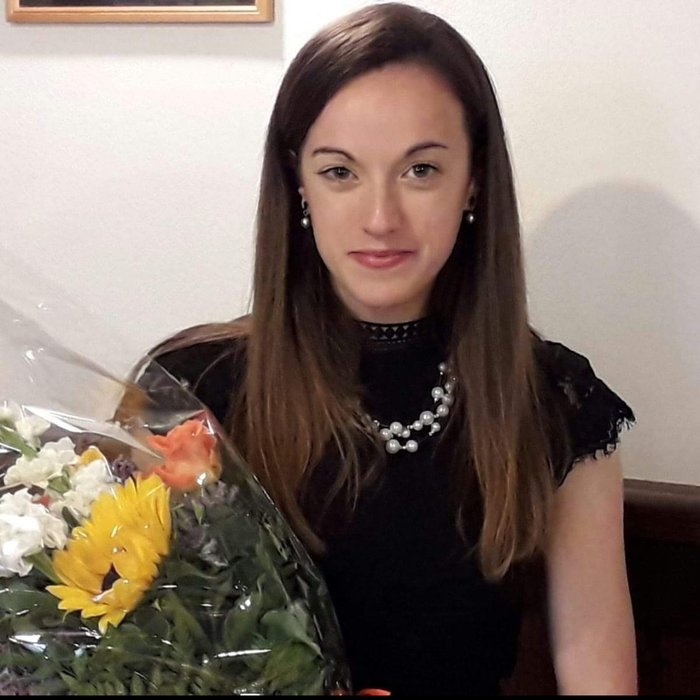Client representative (banking sector)
Professional opportunities

Arianna Grisostolo
Client representative (banking sector)
Graduate in Classics: Archaeology, History, Literatures
Interuniversity course
University of Udine; University of Trieste
Arianna Grisostolo
Client representative (banking sector)
Graduate in Classics: Archaeology, History, Literatures
Interuniversity course
University of Udine; University of Trieste

My name is Arianna Grisostolo. I have graduated at the University of Udine, first in Humanities, then in Classics, curriculum: History and Literatures. I work as Client Representative in the banking sector, more precisely for Crédit Agricole Friuladria.
The Interview
What led you to choose Humanistic Studies?
Since my first years of school I showed an aptitude for humanistic subjects, thus I have chosen to cultivate this interest further, first in the high school, then by choosing Humanities at the University of Udine.
Have you ever been abroad during your university education?
Yes, I have had the possibility to spend six months at the Universidad de Barcelona thanks to an Erasmus+ grant.
What role does your humanistic education play in your current occupation?
My humanistic education has been decisive during the hiring process for my current job: it has allowed me to develop important interpersonal skills (in this sense, my spanish experience has proven to be highly beneficial) and a remarkable open-mindedness, which turned out to be my greatest trump card for getting through the interviews. Not only this: these very same skills have helped me a lot to adapt positively and to learn soon the competences, which my new work context was requiring me to handle.
Besides, it often strikes me how much people appreciate my humanistic approach, especially in such a technical working environment as the banking sector: I work in direct contact with the public and I have found out that what clients seek is not only to have detailed clarifications on procedures, but also to deal with someone who is able to understand them and see things from their point of view!
Do you think that humanistic studies could pave the way for various careers?
Contrary to popular belief, I have always been confident about the fact that a humanistic education could open up various job opportunities. After graduation, I did not merely try to become a teacher, as it appears normal by all accounts. Of course, this is a very logical solution, perhaps the most fitting, but – as shown by my case – by no means the only one possible. Numerous companies look for graduates in humanistic disciplines to employ in sectors such as personnel/human resource management, and more.
What would you recommend to young people struggling with the choice of the right study programme?
I would suggest to follow their own aptitudes and not to rely too much on employment rates for recent graduates, when it comes to choosing their education. Besides, I would recommend humanistic studies not so much for the specific knowledge they provide, as for the mindset and the soft skills they help to shape. These last competencies are particularly sought after by recruiters nowadays, so they can be seen as the real key to enter successfully the world of work, whatever particular job one may choose to do.




